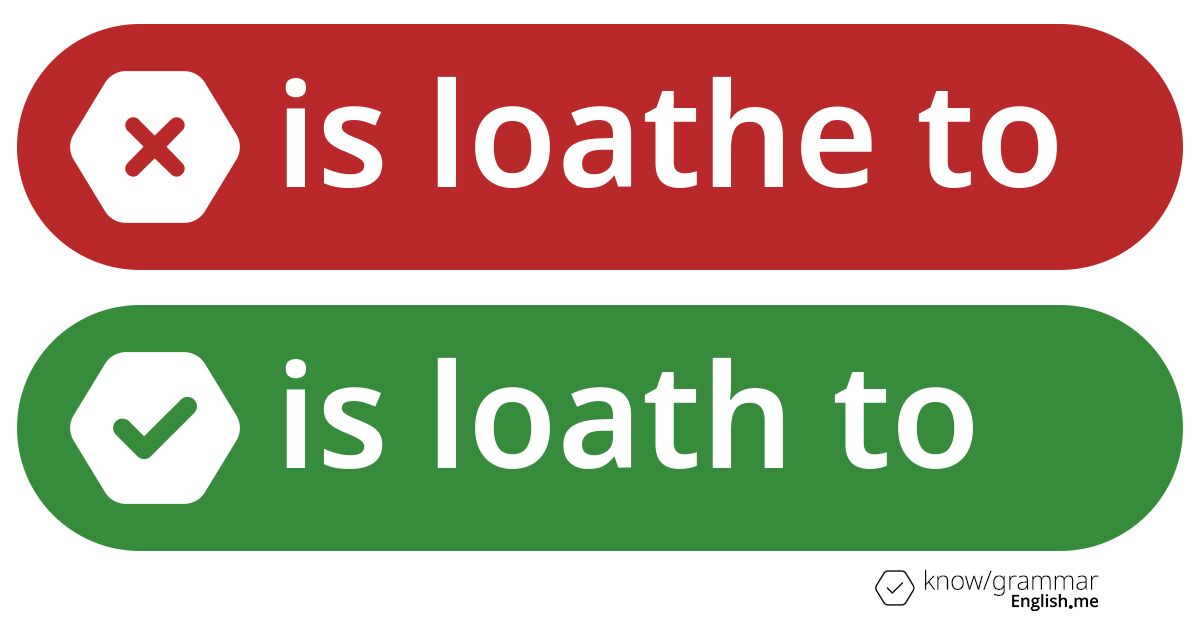Why "is loathe to" misspeaks the intention
Reviewed and edited by  Lloyd Cooper 09/10/2024, 12:21
Lloyd Cooper 09/10/2024, 12:21
English.me team member
 What kind of error is it?
What kind of error is it?

Misuse of homophones
 Why do people make this mistake?
Why do people make this mistake?
People often confuse the words "loathe" and "loath" because they sound similar and are spelled similarly, but they have different meanings and usages.
 What is correct?
What is correct?
The correct phrase is "is loath to", using "loath" (an adjective meaning "reluctant" or "unwilling") instead of "loathe" (a verb meaning "to intensely dislike").
 Examples of correct usage
Examples of correct usage
- She is loath to admit her mistakes.
- He was loath to leave the party early.
- They are loath to change their plans.

 English
English español
español française
française italiano
italiano deutsche
deutsche 日本語
日本語 polski
polski česky
česky svenska
svenska Türkçe
Türkçe Nederlands
Nederlands